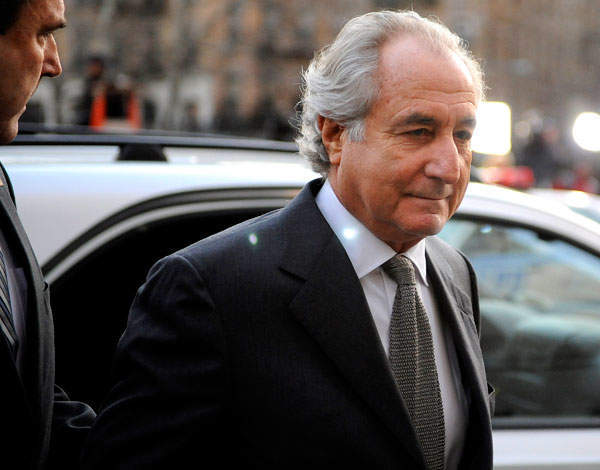

After Madoff, people have become wise to Ponzi schemes – but new schemes are relying on the same components and having the same effect on those with money to invest, aspiration and misguided trust.
In recent years, previously trusted wealth creation investments – such as land, or retail consumables – have become volatile and unreliable. Those who rely on them have suffered a relative decline in asset value, being overtaken by those investing and speculating in high risk, high yield investments. It’s this climate in turn that encourages the entrepreneur to take greater risks and ignore warnings. And off the back of this comes the new financial scams: the modern-day Madoff.
More and more clients are coming to us about investment schemes that have not delivered the returns they were expecting – or at all. The story is variation on a theme: they were approached by financiers who somehow knew they had money to invest.
The latest schemes purport to involve bank instruments, medium term notes (MTNs) and government bonds. The fraudsters claim to have access to secret trading platforms and private placements. The exclusive schemes they present are said to be sanctioned by organisations such as the Federal Reserve, the World Bank or the IMF.
They are available only to the wealthy elite: you invest several millions – be it £2 million or £200 million – and you are guaranteed almost immediate, massive, risk-free returns. In a case we won last week, our clients were told that if they invested €100 million, they could make the same amount in thirteen months.
In our experience clients are often told that there is a ‘big player’ behind the scenes, who they will not be allowed to meet, and over months or even years their credentials will be checked by a core group or ‘team’ of individuals who they get to know and trust.
They are regularly reminded of the ‘privileged position’ they are now in. Once finally accepted onto the scheme, investors will be instructed to transfer funds to a ‘blocked account’ so that it is ready ‘to be traded’. Individuals remain confident that their funds are secure – safe in the knowledge that their authority is required to move them.
Once in this ‘blocked account’, funds will either be transferred without authority – a straightforward theft. Or alternatively, the by-then trusted team will explain that there are unexpected last minute problems, matters beyond their control, and the funds must be transferred to another account; they will only be out of the investor’s control for a matter of days.
Once they have control over the funds, they are quickly dissipated across numerous jurisdictions. By the time people realise what has happened their money is long gone, transferred across the globe. The team no longer respond to emails or calls; and it transpires that there is no other way to contact them. The money is lost.
While these are sophisticated schemes being presented by seemingly consummate professionals, there are warning signs to look out for.
1. Secrecy: no legitimate investment scheme needs to be kept secret. If you want to discuss it with your trusted financial advisor, accountant or lawyer – you can and you should.
2. Stressing that you are in a privileged position: you are not. It’s your money and you can do what you want with it.
3. Excessive use of technical terminology. If you don’t understand something – ask for an explanation until you know precisely what your money is being invested in and what the mechanics of the deal are. Anyone offering you an investment should be both willing – and able – to clearly articulate how an investment scheme works.
4. Paperwork: it should be comprehensive. Get it reviewed by your trusted adviser. If anything seems unusual – such as being subject to an unexpected jurisdiction – question it.
5. Resistance to questions: any investment should be entirely transparent. There is no information to which you are ‘not entitled’. It’s your money – your risk.
6. Last minute requirements. Don’t be rushed. If matters change at the last minute because of unforeseen circumstances, make sure you’re entirely comfortable with the changes being made.
Last week we obtained a judgment for clients defrauded of €100 million. While $88 million has been returned and the fraudsters ordered to pay the remaining €12 million plus costs, it has taken over two years for the litigation to complete. Be wise to the schemes: if it looks too good to be true – it usually is.
Victoria Pigott is an associate at Mishcon de Reya (Victoria.Pigott@Mishcon.com)







